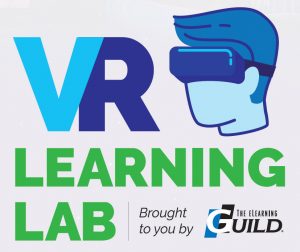David Kelly’s Curated L&D Content for the Week of 09/25/17
 This week’s curated content includes links exploring the following:
This week’s curated content includes links exploring the following:
- early examples of AR via Apple’s ARKit
- a resource for inspiring your data visuals
- why curation is critical for L&D
- a study on how smartphones can be used to help those suffering from depression
- how artificial intelligence may be the future of design
- why looking at AR and VR with fresh eyes is so critical
Here’s the content for this week:
5 iOS ARKit Apps That Will Show You The Power Of Augmented Reality by Eric Jones
Last week Apple released its latest version of its iPhone software, iOS11. Quite possibly the biggest aspect of this release is the inclusion of ARKit, as it’s poised to potentially normalize augmented reality in the consumer marketplace. Augmented reality has tremendous potential for L&D, so I suggest people in our field familiarize themselves with this technology and how it is being used. This post examines 5 early ARKit-powered apps that show the potential of AR.
A Wikipedia For Data Visualizations Is Here by Katharine Schwab
Infographics continue to gain popularity as a means to convey information and data. However, they also require an understanding of how to visualize data in new and interesting ways. This site provides over 150 different ways to represent data. Even better, it gives you the option to search for different formats of data set to find specific visuals that may match your data.
If you’re exploring using infographics in your work, this site is worth a bookmark.
Why Curation Revolutionizes Education & Learning by Robin Good
Curation is a tool that helps L&D build learning programs and support resources that are more effective and delivered faster than we could ever create content ourselves. It is also a practice that reflects how the world around us is changing. This post explores 10 reasons that curation is uniquely positioned to support a needed shift in education and training.
The efficacy of smartphone-based mental health interventions for depressive symptoms: a meta-analysis of randomized controlled trials by Joseph Firth, John Torous, Jennifer Nicholas, Rebekah Carney, Abhishek Pratap, Simon Rosenbaum, & Jerome Sarris
I share this post for a few reasons. First, the subject of the study is very interesting: how smartphone-based resources can help those suffering from depression. It’s also an interesting look into what may work, and what may not work, in regards to using smartphones to influence behavior. Lastly, reading studies like these are always helpful to L&D professionals that need to better understand how data can be analyzed to help tell a story.
When Websites Design Themselves by Jason Tselentis
There’s no shortage of information available today exploring the many ways that artificial intelligence is poised to transform our world. From recruiting to travel to self-driving cars, it seems like every industry will eventually be disrupted by AI, including the business of training and development. But while many of the discussions focus on designing new systems with AI in mind, this article explores AI from a new angle – one in which AI can actually take the reigns of design itself.
AR & VR Success Hinges on Native Thinking by Mike Boland
Augmented and virtual reality are two of the hottest new technologies in the training and development industry. These technologies bring with them a host of new and exciting opportunities for learning and performance. Unfortunately, they also bring with them risks, one of which is our inability to harness the technology’s potential if we can not break free from our existing paradigms. Too often we look at new technologies through the lens of what we know about existing technologies, and that limits how we use them. As this article explores, the long-term success of AR and VR may well be determined by our ability to look at these technologies with fresh eyes.
Immerse Yourself in VR Learning…
 Are you interested in exploring the growing world of virtual reality and how it can be used for training and development programs?
Are you interested in exploring the growing world of virtual reality and how it can be used for training and development programs?
Consider joining us for DevLearn in Las Vegas this October. We’ll be hosting the VR Learning Lab where you’ll have the opportunity to experience cutting-edge VR applications on Oculus Rift. HTC Vive, and Playstation VR. In order to understand how to use VR for learning and development, you need to understand what it means to experience it for yourself. Join us for the VR Learning Lab at DevLearn and put VR into the context of your work.

Leave a Reply